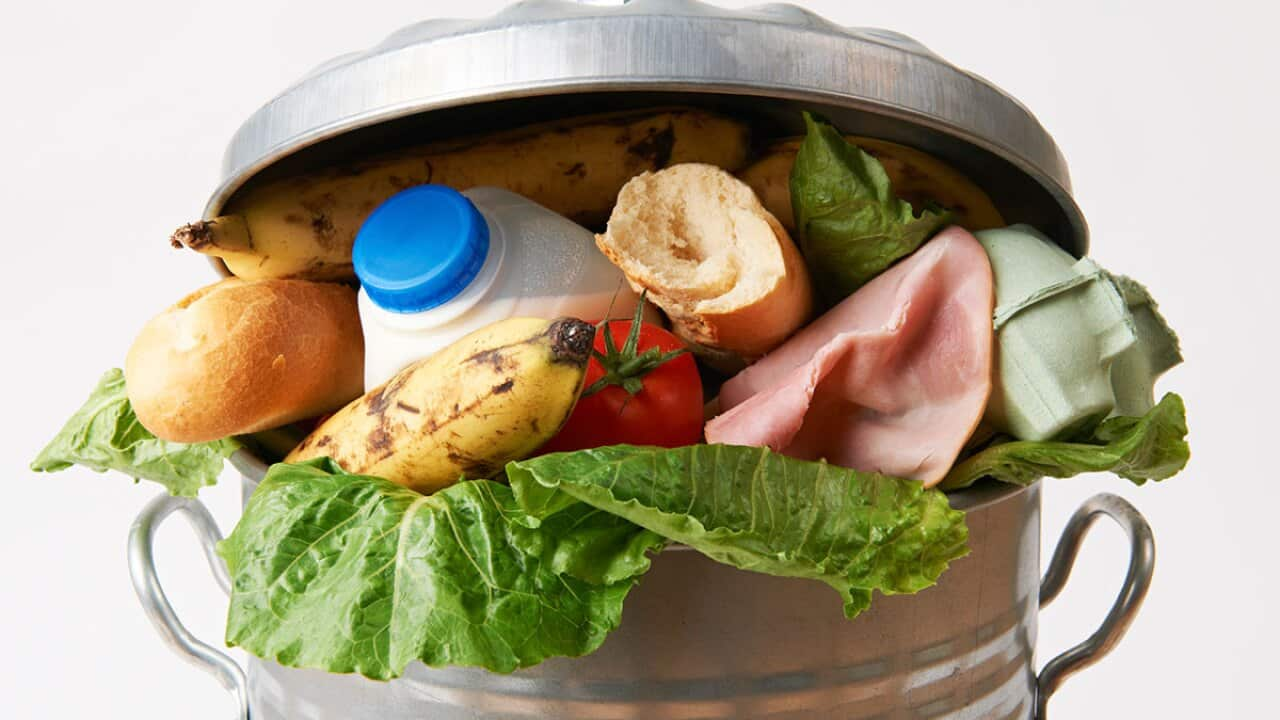A few months ago, I stopped buying almonds. No more packaged almonds, no almond butter, no almond milk.
“Did you know,” my husband asked, when he told me we could no longer buy anything vaguely almond-affiliated, “that it takes to grow one almond?” I did not. And so, with heavy, almond-loving hearts, we stopped buying almonds. (Later, we laughed at , a character on Netflix’s The Good Place, who thinks he’s ended up in - spoiler! - the bad place because he didn’t stop drinking almond milk, even though he knew it was terrible for the environment. Relatable.)
I did not. And so, with heavy, almond-loving hearts, we stopped buying almonds. (Later, we laughed at , a character on Netflix’s The Good Place, who thinks he’s ended up in - spoiler! - the bad place because he didn’t stop drinking almond milk, even though he knew it was terrible for the environment. Relatable.)

Almonds have a larger carbon footprint than you'd think. Source: China Squirrel
It got me thinking, though, about what other decisions we were making at the supermarket that could be devastating the environment. Was I inadvertently squashing the planet with my massive carbon footprint? To find out, I chatted to Natalie Isaacs, the founder of , a not-for-profit group aimed at reducing waste and carbon emissions, one member at a time.
“One of the easiest things we can do is leave packaged food on the shelves,” says Isaacs. “We’re currently running a campaign called , and it’s all about not buying heavily packaged food. Most fruit and veg, for instance, doesn’t need to be packaged in plastic - it already has its own packaging (ie the skin), so wrapping it in plastic is just so wasteful.” Isaacs adds that many supermarkets package soon-to-be expired items in plastic and sell them at a cheaper price to try to lure consumers into buying them. “And other times, you see fruit and veg packaged to make it more attractive - recently we’ve seen apples packaged in plastic tubes for absolutely no reason. The tubes can’t be recycled. It’s nuts.”
While cutting down on plastic packaging is a great way to reduce your footprint, Isaacs cautions against buying in bulk (ie buying a five-kilo bag of rice rather than several smaller bags, or buying a large block of cheddar instead of buying individually wrapped cheese sticks) unless you’re sure you’re going to use it. “Australians waste one in five bags of groceries,” she says. “If you’re definitely going to use a bulk amount of something, then that’s fine, go ahead and buy it. But if you’re not sure, leave it.” Remember, too, that a lot of plastic can now be recycled through initiatives like .
“Australians waste one in five bags of groceries,” she says. “If you’re definitely going to use a bulk amount of something, then that’s fine, go ahead and buy it. But if you’re not sure, leave it.” Remember, too, that a lot of plastic can now be recycled through initiatives like .

Good planning can help avoid food waste and save you money. Source: Flickr
The next most important thing is to buy locally, says Isaacs. “Most stores will show you the country of origin for fruit and veg now. Don’t buy grapes if they’re not Australian. There’s no reason for us to be buying oranges from California. Importing fruit and veg comes at a huge cost to our environment, and like the plastic packaging, there’s simply no good reason for it.”
By not buying something, we’re sending a clear message that we don’t want it.
And though it might be controversial to some, Isaacs says that reducing the amount of red meat you eat will make a huge impact on your environmental burden. “Even if you can decrease the amount of red meat you eat by half, you’ll make an enormous difference. The meat industry makes up about 15 per cent of global carbon emissions, so cutting down on your consumption will absolutely make a difference,” she says. Other foods to avoid include those that feature palm oil (which is estimated to be in up to half of all grocery items - check the ingredients to make sure) and of course, those pesky almonds.
Natalie’s top tips
- When possible, buy your groceries from local green grocers, butchers and farmer’s markets. “This way, you can ask questions directly about the providence of your food,” says Isaacs.
- Check the expiry dates of fresh items. If you’re not likely to use it by the time it’s meant to be binned, don’t buy it. (Or if you do, freeze it to extend the life span.)
- Don’t be tempted by pre-packaged items at the supermarket. Pre-packaged lunches and other meals are very popular at supermarkets right now, but it’s always less wasteful to make your own food at home, says Isaacs.
- If you’re buying online, it might be better to buy in bulk (as long as you know you’re going to use it all!), because it’s better for the environment than just shipping a small amount of food.
- Download the app - you can check common brands to see how sustainable they are. There’s a similar app called that helps you choose free-range eggs at the supermarket (because though many brands are labelled free-range, there’s a lot of “greenwashing” in this industry).
“As consumers,” says Isaacs, “we have extraordinary power. By not buying something, we’re sending a clear message that we don’t want it. And when consumers don’t want something, supermarkets listen.”






